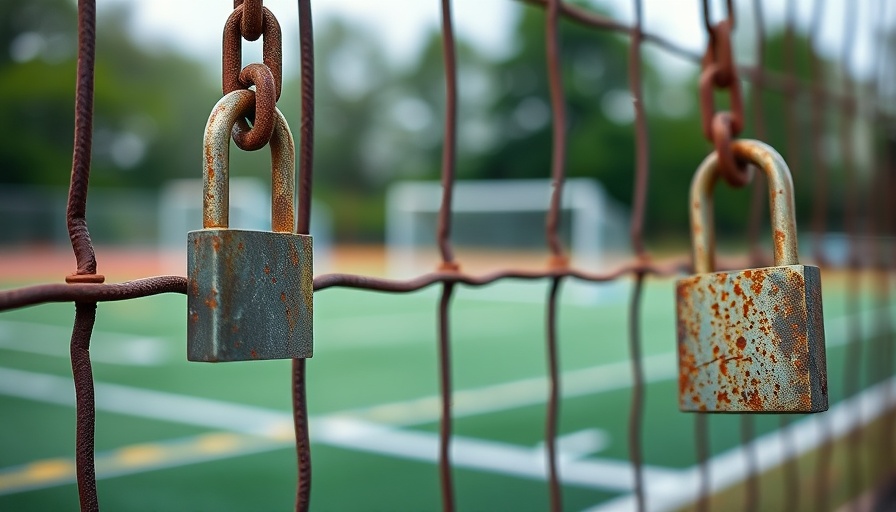
Unpacking the Link Between Betting and Youth Sports Violence
In a recent city council meeting in Cincinnati, Councilman Scotty Johnson highlighted a potentially alarming correlation between illegal betting and rising violence at youth sporting events. He claimed that parents are placing substantial bets—sometimes reaching thousands of dollars—on the outcomes of youth football games, and has pointed this as a catalyst behind reported shootings at these events. “Community, stop betting on our children,” Johnson passionately urged.
The Impact of Gambling on Community Dynamics
Such statements draw attention to a critical issue: the impact of betting on community dynamics and youth sports. While many people enjoy following sports and share their excitement with friendly wagers among friends, the stakes can escalate quickly when money is involved in youth events. Lt. John Cunningham from the Cincinnati Police Department acknowledged the troubling trend, stating that while specific incidents linking betting to violence might not be available, he firmly believed that gambling has no place in youth sports.
Case Study: The Walnut Hills Incident
A particularly tragic incident occurred in October 2024 when a 29-year-old man was arrested following a shooting incident at a peewee football game at Walnut Hills High School. Though it remains unclear if betting was involved in this disruption, the incident illustrated the growing fear surrounding youth sports and highlighted the concern among league executives and participants alike. Uquabis Hawthorn, representing the Southwest Ohio Youth Football League, stated that both excitement and concern pervade the atmosphere at games. “They're worried if we're gonna be able to play,” he said, capturing the anxiety gripping many parents and players.
Responses from League Officials: Agree or Disagree?
League officials and association representatives offered mixed reactions to Johnson's statement. Pastor Peterson Mingo from Cincinnati United Youth Football and Cheer League acknowledged the existence of gambling at youth events but emphasized that it primarily involves spectators rather than organized betting by teams. This perspective raises a question about whether betting is an isolated incident—as Mingo suggested—or a growing concern that needs broader scrutiny.
A Broader Perspective on Youth Sports and Accountability
Critics of Johnson's assertions, like Artamus Palmer of SWOFL, believe he may have overstated the issue. According to Palmer, “The only betting that happens on the field is uniforms, pizza, fun things.” This perspective suggests a lighter view of the situation, but begs the question: how can leagues and communities strike a balance between fun and maintaining a safe environment for youth participants?
Walking the Tightrope: Responsibility in Youth Sports
As communities engage their youth in sports, the implications for safety and accountability cannot be ignored. Establishing clear guidelines and protective measures may be essential in addressing growing concerns surrounding betting without stifling the enjoyment of community events. This balancing act involves parents, league officials, and local authorities working together to foster a culture of support and respect.
Community Forum: A Call for Discussion
To address this issue, community forums could provide a platform for parents, league officials, law enforcement, and local stakeholders. Initiating conversations around responsible behaviors in youth sports can foster greater understanding, educate participants on the risks associated with gambling, and develop strategies to enhance safety at games.
Final Thoughts on a Safe Sporting Environment
The link between illegal betting and violence in youth sports deserves attention but also requires constructive dialogue. While acknowledging the issues presented by Councilman Johnson, it is vital to celebrate the positive impact of youth sports in enriching our communities and inspiring younger generations. Fostering a safe and supportive environment—for both spectators and players alike—will be key to ensuring success on and off the field.
 Add Row
Add Row  Add
Add 




 Add Row
Add Row  Add
Add 








Write A Comment